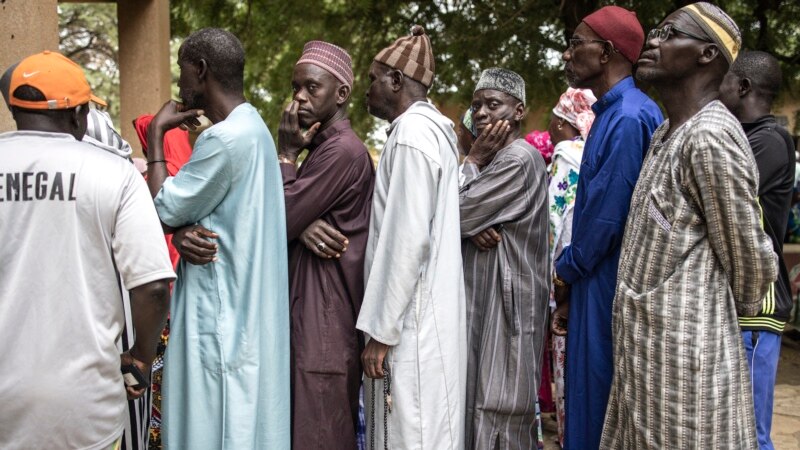Dakar — Senegal on Sunday voted in parliamentary elections, with the new leaders aiming for a resounding majority to see through the promise of ambitious reform that swept them to power eight months ago.
President Bassirou Diomaye Faye secured victory in March pledging economic transformation, social justice and a fight against corruption — raising hopes among a largely youthful population facing high inflation and widespread unemployment.
But an opposition-led parliament hampered the government's first months in power, leading Faye to dissolve the chamber in September and call snap elections as soon as the constitution allowed him to do so.
"I hope that [the ruling party] Pastef will win the elections to gain a majority so that they can better carry out their mandate," said 56-year-old Pascal Goudiaby, who was among dozens waiting to cast their ballots at a polling station in the capital Dakar.
"The priority is unemployment, young people are facing so much unemployment," he added.
Faye appointed his firebrand mentor Ousmane Sonko as prime minister, after Sonko's own bid to run for president was blocked following a three-year deadly standoff with the former authorities.
The pair promised a leftist pan-African agenda — vowing to diversify political and economic partnerships, review hydrocarbon and fishing contracts and re-establish Senegal's sovereignty, which they claimed had been sold abroad.
The West African country's roughly 7.3 million registered voters will elect 165 MPs for five-year terms.
Analysts say Senegalese voters have historically confirmed their presidential choice during parliamentary elections, and the Pastef party is the favorite to win.
"I think that whoever you gave your confidence to in the presidential election, you need to renew your confidence in him so that he can achieve what he started," said 56-year-old voter Toure Aby.
"We want life to be less expensive for the Senegalese", she added. "Everything's expensive: water, electricity, food."
'No room for violence'
Voters are continuing a long democratic tradition in Senegal, widely seen as a stable outlier in a coup-plagued region.
Prime Minister Sonko cast his vote in the morning in the southern city of Ziguinchor, calling for calm.
"Democracy is expressed in peace and stability, and I believe that in a democracy there is no room for violence," he said.
Sonko spent three weeks on the campaign trail promising projects and investment in the regions he visited, while applauding patriotism and national sovereignty.
Reminiscent of his years as a fiery opposition leader, he had called for vengeance after attacks against his supporters, but later urged restraint.
Despite the heated tone, clashes were sporadic in the run-up to the vote.
Though some agreements have been reached between coalitions, the opposition remains fragmented.
Former president Macky Sall is leading an opposition grouping from abroad, breaking with the political restraint normally adopted by ex-leaders in Senegal.
He left power in April after triggering one of the worst crises in decades with a last-minute postponement of the presidential election.
Former prime minister and presidential runner-up Amadou Ba, and Dakar mayor Barthelemy Dias, are also heading coalitions.
Bleak picture
The opposition has accused the new government of inaction, amateurism and a desire to settle scores with the previous administration.
Unemployment stands at more than 20 percent and scores continue to risk their lives every month in a bid to reach Europe by boat.
The government said an audit of public finances revealed a wider budget deficit than previously announced, with the International Monetary Fund suspending an aid program pending the audit's review.
Moody's downgraded Senegal's credit rating and placed the country under observation.
Since taking office, the authorities have lowered the price of household goods such as rice, oil and sugar and launched a series of reviews.
They have initiated justice system reform and presented an ambitious 25-year development plan aimed at transforming the economy and public policy.
Polling stations close at 6:00 pm (1800 GMT).
Reliable projections of the new parliament's makeup could be available from Monday morning.


